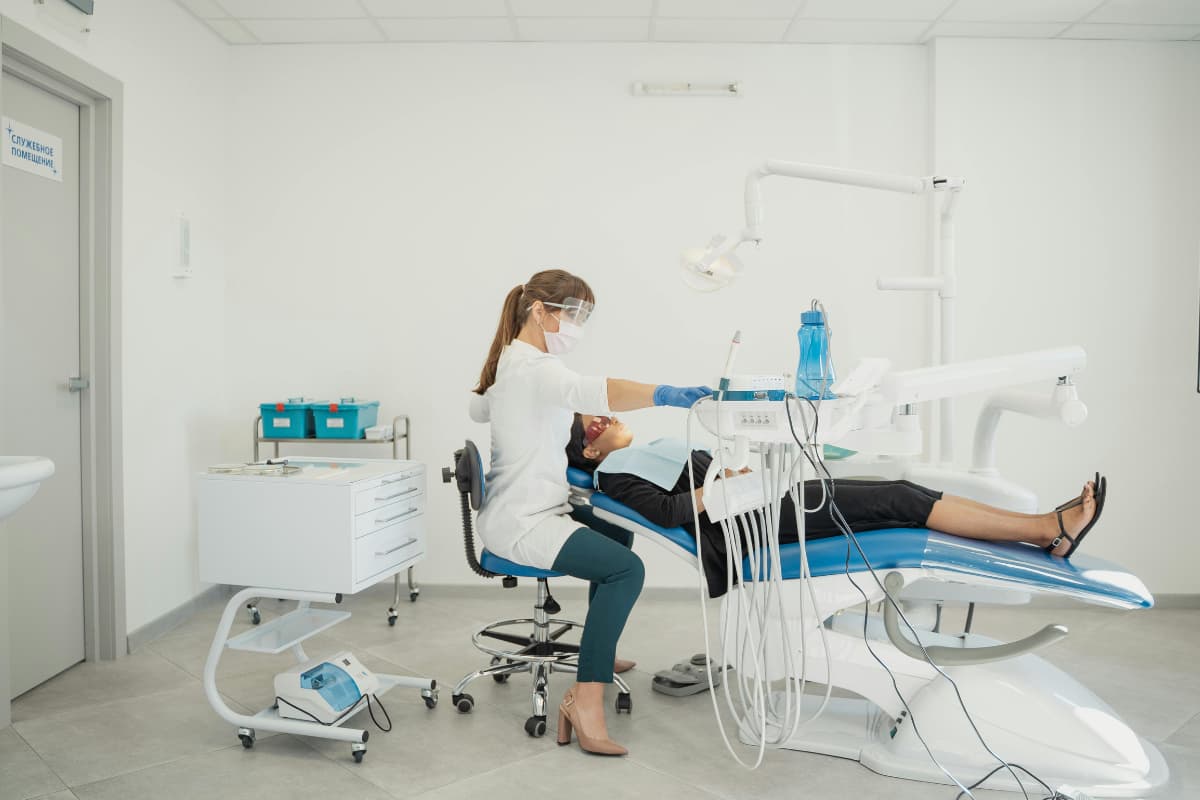The continuing education requirement for dentists
In Germany, dentists are subject to a statutory continuing education obligation, which is regulated in the Social Code (SGB V) § 95d. This obligation has been in force since January 1, 2004 and concerns contract dentists and employed dentists in medical care centers.
This continuing education requirement is intended to ensure that dentists remain continuously up to date with the latest science and practice in order to ensure a high quality of dental care.
Providers, for example, also offer these continuing education credits (called CME credits) like Nelly regularly as part of events and webinars. For example, you can Here is a webinar on patient communication Watch afterwards.
Main points of the continuing education obligation:
- 5-year period: Every dentist must collect at least 125 continuing education points within 5 years and prove this. The points are earned through participation in certified continuing education events, the value of which is determined by the Federal Dental Association (BZÄK) and the German Society of Dental, Oral and Maxillofacial Medicine (DGZMK).
- Obligation to provide evidence: Dentists must prove their continuing education credits with certificates. These certificates must meet the specified criteria and can be checked on a random basis by the Statutory Health Insurance Dental Associations (KZV). The proof must be submitted to the responsible concentration camp at the end of the five-year period.
- Consequences of failure to prove: If a dentist does not provide the proof by the deadline, this will result in fee reductions. In the first four quarters after the 5-year period, the reduction is 10%, then 25%. If the proof is not provided within 2 years, this may result in the withdrawal of the license.
- Salaried dentists: Employed dentists are also required to provide continuing education. Here, the employer is responsible for providing proof. The deadline for proof starts with the first admission or approval of employment.

The Academy for Continuing Dental Education
The Academy for Continuing Dental Education Karlsruhe is a leading institution in Germany that specializes in continuing education for dentists. It is part of the Baden-Württemberg State Chamber of Dentists and has been offering a wide range of continuing education events since 1960. The Academy also operates a dental polyclinic, which is closely linked to continuing education activities. It has an excellent reputation among dental professionals and is known for its comprehensive and high-quality continuing education offerings.
What types of continuing and continuing education are available for dentists?
As a dentist, there are a variety of continuing education and training opportunities, which include professional specializations as well as business and technological knowledge include. Here are the main categories:
1. Professional training
These training courses focus on specific dental areas and deepen knowledge and practical skills.
- implantology: Dental implantation, planning, surgery and aftercare courses.
- endodontics: Training on root canal treatment and other endodontic procedures.
- periodontology: Specialized courses for diagnosis and treatment of gum disease.
- orthodontics: Training courses to correct misalignments of the teeth and jaws.
- oral surgery: Courses that cover oral surgical procedures, such as wisdom tooth removal and jaw surgery.
2. Management and billing
These courses are aimed at the business aspects of a dental practice.
- practice management: Training to effectively manage and optimize practice processes.
- reckoning: Courses on billing modalities according to BEMA (assessment standard for dental services) and GOZ (fee schedule for dentists) as well as on correct documentation and legal bases.
3. Technological training
With the increasing Digitalization in healthcare Technological training is particularly important.
- digital dentistry: Training on the use of digital technologies such as CAD/CAM systems and digital molding.
- Imaging and radiology: Courses on the application of modern imaging techniques such as 3D X-rays and DVT (digital volume tomography).

4. Hygiene and infection control
This training is essential for compliance with hygiene regulations and infection control in practice.
- sterilization techniques: Training on sterilization of instruments and the handling of medical devices.
- hygiene management: Courses for the development and implementation of hygiene concepts in practice.
5. Communication and patient management
These training courses help dentists improve their communication skills and optimize patient management.
- patient communication: Training to communicate effectively with patients to reduce anxiety and strengthen patient loyalty.
- team leadership: Courses to guide and motivate the practice team.
6. Legal and ethical training
These courses cover legal and ethical aspects of dental practice.
- Professional law and liability: Training on legal frameworks and liability issues in dentistry.
- Ethics in dentistry: Training on ethical issues and decision-making in everyday dental practice.
7. Interdisciplinary training
Dentists can also take part in continuing education courses that go beyond dentistry and provide interdisciplinary knowledge.
- maxillofacial surgery: Courses that focus on collaboration with other medical specialties.
- sleep medicine: Training for the diagnosis and treatment of sleep-related respiratory disorders in collaboration with sleep doctors.
What career opportunities are there as a dentist?
As a dentist, there are a variety of career opportunities to advance your career and take on new areas of responsibility. Here are a brief summary of some of the most important career opportunities:
- specialization: Continuing education in specific fields such as orthodontics, oral surgery, periodontics, endodontics or pediatric dentistry.
- Practice extension: Establishing or taking over your own practice or expanding the existing practice into a joint practice or a medical care center.
- Executive positions: Taking on management positions, e.g. as chief physician in a clinic or as senior dentist in a large practice.
- Academic career: Research and teaching activities at universities, including the opportunity to obtain professorships.
- Continuing education and training: Commitment to the education and training of other dentists and dental staff, e.g. as a lecturer in continuing education courses.
- Professional associations and professional associations: Active participation and assumption of leadership roles in professional dental associations and societies.
- health management: Continuing education in the area of practice and health management to take on management and administrative tasks.
- forensic dentistry: Specializing in forensic dentistry to work in forensic medicine.
What is the maximum amount you can earn as a dentist?
As a dentist in Germany, the maximum income can vary significantly and depends on several factors such as professional experience, type of practice and geographical location.
- An independent dentist With own practice, he is one of the top earners and can achieve an annual gross income of up to 165,000 euros. In some cases, the practice surplus can even exceed 200,000 euros per year.
- Salaried dentists earn between 36,000 euros and 85,000 euros annually, depending on experience and position. Top salaries for experienced dentists in senior positions can amount to up to 120,000 euros.
- specialist dentists Like orthodontists and oral surgeons, they can also earn high salaries, often in excess of 100,000 euros per year.











